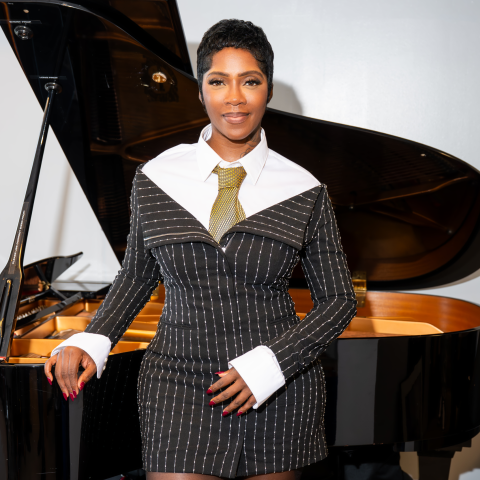A Lesson in Determination

Erin and Pete Huttlinger
Those seeking to master music as a vocalist, instrumentalist, composer, songwriter, producer, or in another aspect of the musical arts, know that it’s a lifelong quest and that the acquisition of skills is cumulative. For most—unless we switch instruments or directions—we generally don’t return to square one. Not so for Nashville-based guitarist Pete Huttlinger ’84, who distinguished himself early on as a fingerpicking champion and later became a busy Nashville sideman performing with John Denver, John Oates, LeAnn Rimes and others. He found himself needing to tackle the basics of guitar first in his youth and again as an adult.
The book Joined at the Heart, which he penned with his wife, Erin, details the serious medical problems that imperiled Huttlinger’s life. It reveals the couple’s grit and determination to overcome and devotion to their goal of keeping Pete on planet earth. In 2011, after a yearlong battle, Huttlinger had to learn again how to relay the musical thoughts in his brain to his resistant hands after a stroke and then again after a grueling recovery following surgery to equip him with a ventricular assist device (VAD) to aid his heart. But he soldiered through and brought his playing to a virtuosic level once again.
When Huttlinger was profiled in the fall 2003 issue of Berklee Today , he had established himself as a Nashville session player with a résumé listing a bunch of recording credits and international tours. With his naturally energetic personality, most people never suspected that he had battled heart problems for his entire life.
Huttlinger was born with a rare condition: complex congenital heart disease with atrial-visceral situs inversus, atrioventricular and ventriculoarterial discordance, resulting in mirror image, congenitally-corrected transposition. He also had atrial septal defect (ASD) and ventricular septal defect (VSD), and a pulmonary stenosis.
In layman’s terms, Huttlinger’s heart was located at the right side of his chest rather than the left, and his other major organs were also located opposite to where they are typically found. The ASD and VSD are holes in the septum dividing the chambers of the heart. The condition allows oxygen-rich blood from the left side of the heart to mix with the oxygen-poor blood from the right side of the heart. As Huttlinger stated simply in the book, “The result is two-fold: volume overload on the left ventricle and pulmonary hypertension. None of this is good.” Additionally, his pulmonary stenosis meant that blood flow from the right ventricle to the pulmonary artery was obstructed.
The problems became apparent when Huttlinger was young. At 12, he underwent surgery to repair the ASD, VSD, and stenosis. Upon leaving the hospital, his doctor advised: “Listen to your body. It will tell you what you can do.” Within his limits, Huttlinger, nevertheless, hiked, swam, biked, and ran. For the most part, he enjoyed good quality of life. At 14, he picked up the guitar. He came to Berklee in 1981 and following his studies, moved to Nashville in 1984 and launched his career. Steve Vai signed Huttlinger to his Favored Nations label in 2000 after he was named the National Fingerpicking Champion. Huttlinger released 10 albums, as well as instructional DVDs and books, and had fans worldwide.
He met his wife, Erin Morris, in 1998. A public relations specialist in Nashville, Erin spent 11 years working for top country music artists at RCA Records before launching her own PR company. She met Pete when they were both working on a John Denver tribute show in Aspen, Colorado. Erin soon took over Pete’s publicity efforts. She later became his manager and then his wife. Erin has also played an indispensable role as his medical advocate and chief supporter. She was by his side through a series of operations and throughout the difficult process of rebuilding his health and guitar skills.
Signs of trouble appeared in August 2010, a few weeks after Pete had a pacemaker/defibrillator implanted. He and Erin were traveling to Copper Mountain, Colorado (altitude 10,00 feet), where Huttlinger was to appear at a guitar festival. After arriving, Pete’s breathing was seriously affected by the altitude. He headed to lower ground in Denver. No improvement. In his condition, a flight back to Nashville was too risky, so Erin drove Pete in a rental car back home.
In November 2010, a few months after surgery to repair the pacemaker/defibrillator, Pete suffered a massive stroke. A CT scan revealed that the stroke had damaged 20 percent of Pete’s brain. He was paralyzed on one side and unable to speak.
The options were a high-risk surgery or a more conservative pharmaceutical treatment. In an atypical move, a doctor on the case—himself a guitarist—strongly recommended the surgery, which held the distinct possibility that Pete might not survive it. Otherwise, he stated, Pete would never play again. Knowing that life without guitar playing would be unacceptable, Pete and Erin gambled—and won.
Within a week of the stroke, Pete attempted to play, but his right hand did not work. After dogged persistence, he relearned one song. The doctors marveled at his progress. Within a few months, he had recovered about 70 percent of his pre-stroke capabilities. He started playing gigs again, this time Erin did all the driving and carrying of suitcases and guitars.
Sadly, other issues arose. By March 2011, Pete was experiencing fluid buildup and other dire symptoms of end-stage heart failure. By mid-April, a heart transplant offered a chance of a return to vigor. But due to his congenital conditions, Pete was not a viable candidate for a transplant. He was med-flighted from Nashville to Texas Heart Institute in Houston. Gravely ill, he endured months of medical procedures with long stretches in intensive care before he and Erin could move to an apartment near the hospital. Months without solid food had made his weight plummet to 110 lbs. Finally, on August 22, 2011, Pete was cleared to return home to Nashville. His new constant companion was a bag slung over his shoulder containing a four-pound VAD that was wired to his heart to keep his blood circulating.
Throughout their ordeal, the Huttlingers received tremendous support from family, friends, and Pete’s large fan base. A CaringBridge campaign, MusiCares contributions, benefit concerts featuring celebrity musicians, and the kindness of many, helped the Huttlingers stay afloat financially while neither of them were able to work.
Back home, Pete took up the challenge of playing guitar again. It had been a year since he played as hard as he used to, and playing really hurt his bony fingers. After the stroke left him unable to play upstrokes with a pick, he responded by playing Freddie Green-style rhythm guitar—all down strokes. Upon returning from Houston, though, he found that he couldn’t fingerpick either. He played a little each day to build up stamina and employed the visualization techniques he’d used before to learn music. But he couldn’t “see” what he used to be able to do. “I learned over time that I was not ready yet to do those things,” he writes, “and that was why I couldn’t yet see them in my mind. As time progressed, I was able to see more and more.” Slowly, things began to turn around. Each milestone he passed offered new incentive.
“For the longest time, each day would bring back something that I couldn’t do the day before,” he writes. A right-hand pattern would again reveal itself, and old tunes he used to know would reappear. He was gaining ground, yet, some techniques eluded him. “Maybe I wouldn’t be the player I was before all this happened,” he writes, “but I could still play pretty darned well if I could only be patient and accept whatever gifts were given to me as they were given.”
Pete returned to Texas Heart Institute in May 2012 to give a concert for the cardiology doctors and nurses. Dr. O.H. “Bud” Frazier, a pioneer in the invention of cardiac assist devices, pulled Erin aside afterward and told her that Pete was the perfect example of what he’d been working for. Pete hadn’t just survived; he’d thrived. Dr. Frazier passed her a note that read, “Pete, don’t just live, live well.” The Huttlingers adopted that as their motto.
“Recovering my health and learning to play guitar again has made me dig deeper inside and discover more about who I am as a person and a player and what I may have to offer others,” Huttlinger wrote in an e-mail late in October of 2015. “Sharing my story has been a real blessing.”
On January 15, Pete Huttlinger passed away after suffering a sudden stroke on January 11. He’d posted a great performance video to his Facebook page on January 5, and played a gig on January 9. In August 2015, Pete released Parnassus, his final album with vocalist Mollie Weaver. He leaves his wife Erin and stepchildren Sean and James Della Croce. Visit petehuttlinger.com.




